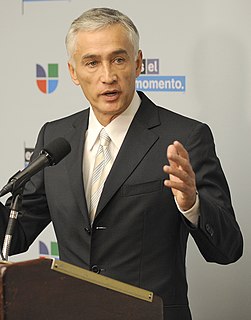A Quote by John Mahoney
It was very gray, very dreary. Everything was still rationed when I first saw the United States in 1951. I went over to visit my sister who was a war bride.
Related Quotes
I don't believe that China, in my lifetime or maybe my children's lifetime, be equal to the United States militarily speaking, but they are very careful to avoid any engagement in war, they are basically a peaceful country, which gives them another advantage over the United States when we are much more inclined to go to war for various reasons.
The Italian journalist Oriana Fallaci used to say that for her, an interview was like a war. I get the sense that we've forgotten that here in the United States. You turn on the TV, and you see very bland interviews. Journalists in the United States are very cozy with power, very close to those in power.
In Europe, you have very different situation than you do in the United States. In Europe, it's very segregated. And you have the diasporas in Belgium that I saw. And they're being radicalized because they're not assimilated with the culture. I don't think we have that same situation in the United States.
The one thing I miss is hitchhiking. Now there's no more of that. When's the last time you saw a hitchhiker? It's not that I consider it a great sport, but it was my way of seeing the country. The open road, especially in the western United States, is still very pristine, but everything else around it has changed.
In the Islamic world, the U.S. is seen in two quite different ways. One view recognizes what an extraordinary country the U.S. is.The other view is of the official United States, the United States of armies and interventions. The United States that in 1953 overthrew the nationalist government of Mossadegh in Iran and brought back the shah. The United States that has been involved first in the Gulf War and then in the tremendously damaging sanctions against Iraqi civilians. The United States that is the supporter of Israel against the Palestinians.
No man ever saw the people of whom he forms a part. No man ever saw a government. I live in the midst of the Government of the United States, but I never saw the Government of the United States. Its personnel extends through all the nations, and across the seas, and into every corner of the world in the persons of the representatives of the United States in foreign
capitals and in foreign centres of commerce.
I think that it's very important to have the United States' engagement in many situations we have around the world, be it in Syria, be it in the African context. The United States represents an important set of values, human rights, values related to freedom, to democracy. And so the foreign policy engagement of the United States is a very important guarantee that those values can be properly pursued.
If the United States has to accept the U.N. resolutions, we have to generalize it across the board. We can't just pick and choose where we impose and accept the U.N. resolution and don't accept them. U.N. Resolution 242 is very clear and states very clearly that Israel has to go back to the borders of the pre-war of 1967.



































